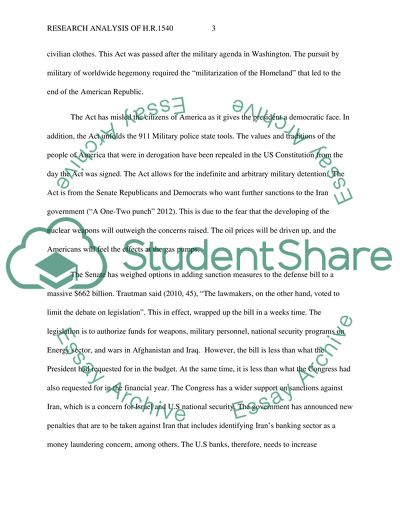Cite this document
(“Research Analysis of H.R.1540 National Defense Authorization Act under Paper”, n.d.)
Retrieved from https://studentshare.org/history/1449192-research-analysis-of
Retrieved from https://studentshare.org/history/1449192-research-analysis-of
(Research Analysis of H.R.1540 National Defense Authorization Act under Paper)
https://studentshare.org/history/1449192-research-analysis-of.
https://studentshare.org/history/1449192-research-analysis-of.
“Research Analysis of H.R.1540 National Defense Authorization Act under Paper”, n.d. https://studentshare.org/history/1449192-research-analysis-of.


